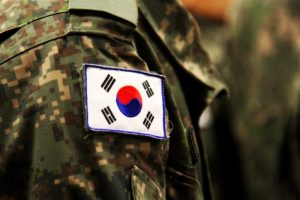In March, a female Republic of Korea Air Force sergeant was molested by a senior non-commissioned officer (NCO). But while the military’s inadequate measures and systematic actions protected the perpetrator, the sergeant was the target of secondary victimization after reporting the assault. Eventually, she made the extreme choice to take her own life on the day of her marriage registration, two months after she was sexually assaulted.
The sergeant, identified only by her surname, Lee, was ordered by another senior NCO to attend a get-together, even though there was a ban on drinking and dining at the time due to the pandemic. The gathering was meant to celebrate a new business opened by her superior’s acquaintance, whom she had no connection with.
On her way back from the get-together, Lee was sexually abused by another NCO, Jang, in the back of a car. She got out of the car and immediately reported the incident to her superior. Jang had good reason to believe that he would not receive proper punishment because of the male-dominated system in the military. Indeed, the NCO who had hosted the get-together urged the victim to pretend that nothing happened. But Lee still thought she could at least be separated from her abuser by reporting the incident. That turned out to be a vain hope.
Jang threatened Lee, and the perpetrator’s father stepped up to pressure Jang to allow his son to be discharged honorably from the military. Jang and his family mercilessly bullied Lee for supposedly trampling on the life of an innocent man. The military, unsurprisingly, provided no assistance to Lee as the bullying continued.
Lee was diagnosed with anxiety disorder and insomnia that required more than three months of treatment, and she eventually requested to move to another unit due to the pressure and unwelcome attention from other soldiers within her unit. However, even within the new unit she had to endure more pressure. Four days after her transfer she registered her marriage with her boyfriend. Then she used her phone to record the last moments of her life.
Lee’s lawyer said the victim agonized over making such an extreme choice. Memos found on her cell phone contained messages like “my body is dirty” and “It’s all because of the perpetrator.”
The bereaved family urged an impartial investigation, but the military did not act until public pressure mounted. The public lacerated the Defense Ministry’s response to the victim’s report. The ministry said it would conduct a strict investigation, made that promise only after media reports and citizen petitions. If the military had taken reasonable and prompt measures when Lee first reported the assault, such a tragic incident could have been prevented.
Instead, Lee’s immediate superior called her out for dinner rather than reporting up the command chain to superiors, saying the assault was something she could go through once in her life. Another immediate supervisor asked her if she could be called aside and let it go. Lee was pressured not to pursue the case by her superiors, who said that fellow soldiers who had violated the quarantine guidelines would also be punished if the case became official. They pretended to mollify her but were trying to cover up her report to avoid consequences for their own wrongdoings.
Not only Lee’s fellow soldiers but also a public defender appointed by the unit had no will to defend the victim. He did not take any action, saying he could not go to see Lee because of the coronavirus quarantine. He did not even accompany her during the victim investigation. In fact, the public defender is now being sued by her bereaved family for leaking the victim’s personal information. He denies the accusation.
In addition, local media reports revealed that the Air Force Judicial Office circulated the victim’s photos and evaluated her appearance. The office also criticized the bereaved family for raising questions about its investigation process.
“[T]here are the rooted perceptions within the military in which soldiers think it is more profitable to cover up than to report incidents,” Kim Hyung-nam, director at the Center for Military Human Rights Korea, told The Diplomat. Kim said the Ministry of National Defense already has detailed guidelines and regulations to prevent such an incident, as similar cases have happened before.
“It’s important to reveal who tried to cover this up and why. Only then can we prevent such an incident in the future,” Kim said.
President Moon Jae-in ordered a strict investigation two weeks after the victim’s death. Given how the Ministry of National Defense and Air Force investigation authorities have handled this case, however, there are fears that they will not properly punish the perpetrator and the victim’s superiors.

































